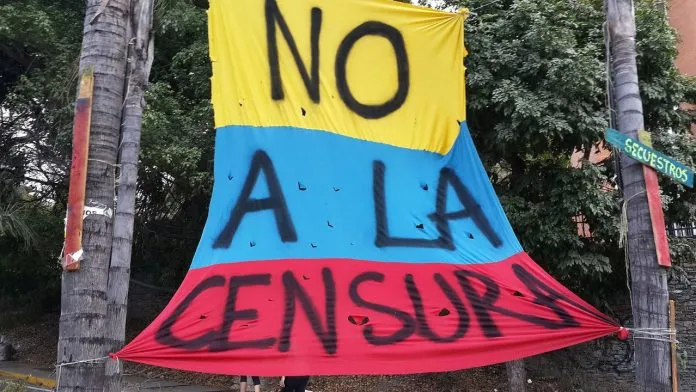Introduction
In a recent report, Espacio Público, an organization dedicated to defending freedom of expression, detailed significant breaches of press freedoms during the Venezuelan presidential elections held on July 28. The organization documented numerous instances of restricted access to voting centers for media personnel, illustrating a troubling pattern of censorship and suppression of journalistic activities. This comprehensive overview will delve into the specifics of these violations, the context in which they occurred, and their broader implications for press freedom and democratic processes in Venezuela.
Overview of Violations
Espacio Público’s Preliminary Report
Espacio Público, an advocacy group focused on upholding freedom of expression, released a partial report outlining severe infringements on media rights during the electoral process. As of 1:00 p.m. on July 28, the organization recorded 15 cases and 16 reports of violations related to the right to freedom of expression. These breaches primarily involved restrictions on press access to voting centers and instances of harassment and detention of media workers.
The organization’s findings highlight the systemic nature of these violations and underscore the challenges faced by journalists and media outlets operating in a politically charged environment. The restrictions imposed on media coverage during the elections raise critical questions about transparency and the free flow of information in Venezuela.
Details of the Violations
Restrictions on Media Access
One of the most significant issues reported by Espacio Público was the widespread prohibition of media access to voting centers. This restriction severely hampered journalists’ ability to cover the election process and report on voting procedures and potential irregularities. According to Espacio Público, the denial of access was pervasive, affecting a wide range of media professionals and outlets.
The organization detailed nine instances where journalists were barred from entering polling stations. These journalists included reporters, photographers, and camera operators who were systematically prevented from performing their duties despite holding formal accreditation from the National Electoral Council (CNE). The restrictions imposed by officials and accredited voting center staff represent a significant breach of press freedom and a serious obstacle to transparent electoral reporting.
Detentions and Harassment
In addition to access restrictions, Espacio Público reported several cases of detentions and harassment of media workers and citizens. The report specified that two media workers and two private individuals were detained in connection with their activities related to the elections. These detentions raise concerns about the broader implications for press freedom and civil liberties in Venezuela.
The harassment of journalists and the detentions appear to be part of a broader pattern of suppressing dissent and controlling information. Such actions undermine the principles of a free press and the public’s right to receive accurate and timely information about the electoral process.
Context and Impact
The Role of Media in Democratic Processes
The ability of the media to operate freely and independently is a cornerstone of democratic societies. Media professionals play a crucial role in informing the public, holding authorities accountable, and ensuring transparency in electoral processes. Restrictions on media access and freedom not only inhibit the flow of information but also erode public trust in democratic institutions and processes.
In the context of the Venezuelan elections, the restrictions on press access and the reported violations of media rights highlight the broader challenges facing the country’s democratic framework. These issues underscore the need for robust protections for journalistic activities and the importance of ensuring that media professionals can operate without fear of censorship or reprisal.
Implications for Electoral Integrity
The restrictions and violations reported by Espacio Público have significant implications for the integrity of the electoral process. Free and fair elections require an environment where media can operate without interference, allowing for comprehensive coverage of all aspects of the election. The documented violations raise concerns about the transparency of the electoral process and the potential for undisclosed irregularities.
The inability of media professionals to access polling stations and report on the election proceedings undermines public confidence in the electoral system and raises questions about the legitimacy of the election results. Ensuring that media can perform their duties without obstruction is essential for maintaining the integrity and credibility of the electoral process.
Responses and Reactions
Espacio Público’s Advocacy Efforts
Espacio Público’s report is a crucial step in highlighting the challenges faced by media professionals during the Venezuelan elections. The organization’s documentation of violations provides valuable insight into the state of press freedom in Venezuela and serves as a call to action for addressing these issues.
By bringing these violations to light, Espacio Público aims to foster greater accountability and transparency in the electoral process. The organization’s efforts contribute to a broader advocacy for media rights and the protection of journalistic freedoms.
International and Local Reactions
The restrictions on media access and the reported violations have elicited reactions from both local and international observers. Human rights organizations, press freedom advocates, and international bodies have expressed concern about the impact of these violations on democratic processes and media freedoms.
Local responses to the situation have included calls for greater protections for media workers and demands for accountability from the authorities. The international community’s reaction will be crucial in addressing the broader implications of the reported violations and advocating for the protection of press freedoms in Venezuela.
Conclusion
The report by Espacio Público detailing violations of press freedoms during the Venezuelan presidential elections sheds light on critical issues affecting media access and electoral transparency. The documented restrictions, detentions, and harassment of media professionals underscore the challenges faced by journalists and the broader implications for democratic processes.
Ensuring that media can operate freely and independently is essential for maintaining the integrity of elections and upholding democratic principles. The report serves as a crucial reminder of the need for robust protections for press freedoms and the importance of addressing violations to safeguard democratic values.


